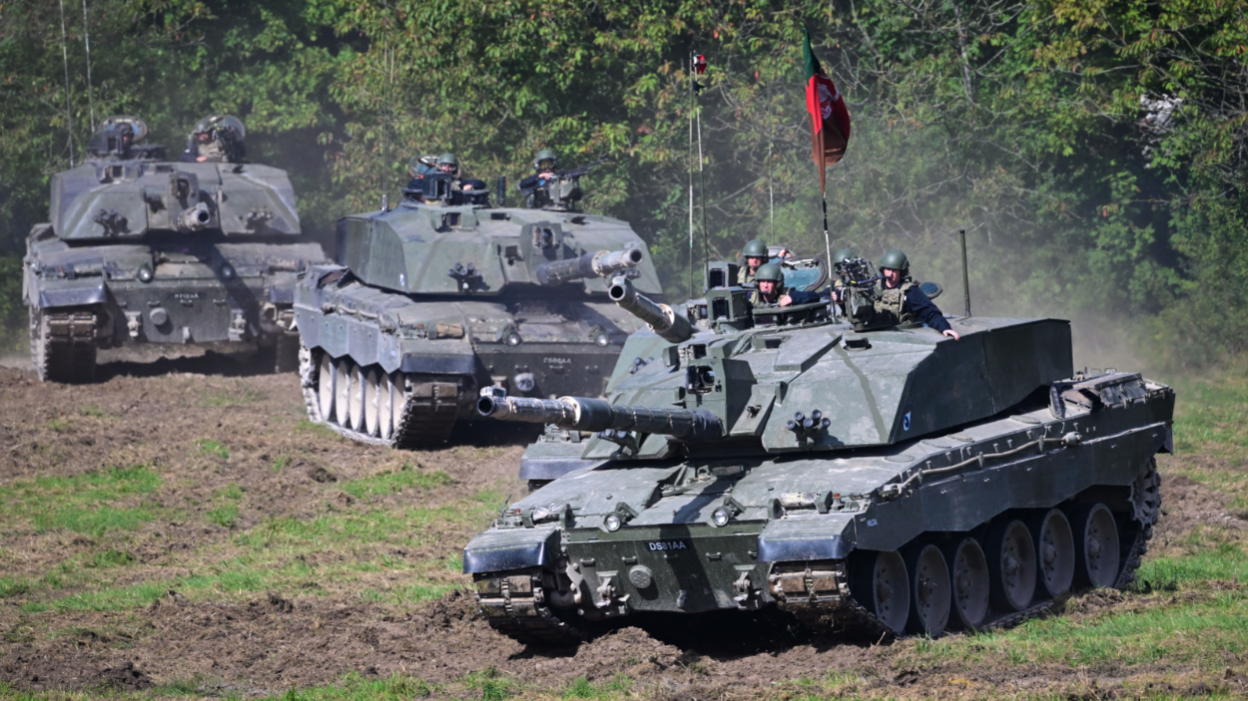Lib Dems push for 3% of national income on defence

- Published
The Liberal Democrats have called for cross-party talks on how the UK can increase defence spending to 3% of national income, up from 2.3% currently.
The move, which the party estimates would hike spending by £20bn a year, would return military expenditure to levels not seen since the 1990s.
The call comes amid renewed pressure on the government to spell out its defence plans, after the US began talks with Russia on ending the war in Ukraine.
The Trump administration wants European countries to make a bigger contribution towards defending Europe, amid calls for it to help police any potential peace deal.
Europe must secure Ukraine's future if US won't, ex-Army head says
- Published21 February
How much do Nato members spend on defence?
- Published18 February
Sir Keir Starmer says the UK is prepared to send troops to Ukraine to guarantee its security as part of a peace treaty, but a US "backstop" will be required to effectively deter Russia from future attacks.
The Lib Dems say that in order to show "leadership", the UK should commit now to hike defence spending to 2.5% of gross domestic product (GDP) as soon as possible, and by 2030 at the latest.
The party has argued that such an increase, estimated to cost an extra £5-6bn a year, could be paid for by increasing taxes on search engines and social media firms, as well as using frozen assets linked to the Russian state.
It has also urged ministers to invite all parties represented in the House of Commons to take part in talks on how spending could be raised up to 3% of GDP, which would be the highest level since 1994.
The party has not specified a date by which it wants this higher target to be hit, suggesting this would be determined during the talks with other parties.
The government is yet to indicate whether it would join such talks, which are rare at Westminster and usually suggested as a way to find consensus in the national interest on politically fraught policy areas.
Spending headaches
The government says it wants to raise UK defence spending to 2.5% of GDP, but is yet to set out a timetable for meeting the pledge.
A "strategic" review of military spending is due in the spring, with three-year departmental spending plans then set out in June.
However, raising defence spending would pose a headache for Chancellor Rachel Reeves, whose self-imposed spending rules have become more difficult to hit amid worsening projections for the economy.
She has committed the government to balancing its day-to-day spending against tax revenues by 2030, a task that will become harder if official forecasters downgrade their predictions for growth.
Speaking on Thursday, Reeves did not offer further clues on when or how she would hit the 2.5% spending target, but reiterated she was "absolutely committed" to doing so.
Rishi Sunak pledged to hit the target by 2030 in the run-up to last year's general election, to put the country's defence industry "on a war footing".
He suggested the extra spending could be paid for through plans to shrink the size of the Civil Service, something Labour suggested meant the plans were not properly funded.
Liz Truss pledged to hike defence spending to 3% of GDP by 2030, but never set out a detailed plan for doing so during her brief 49-day premiership.